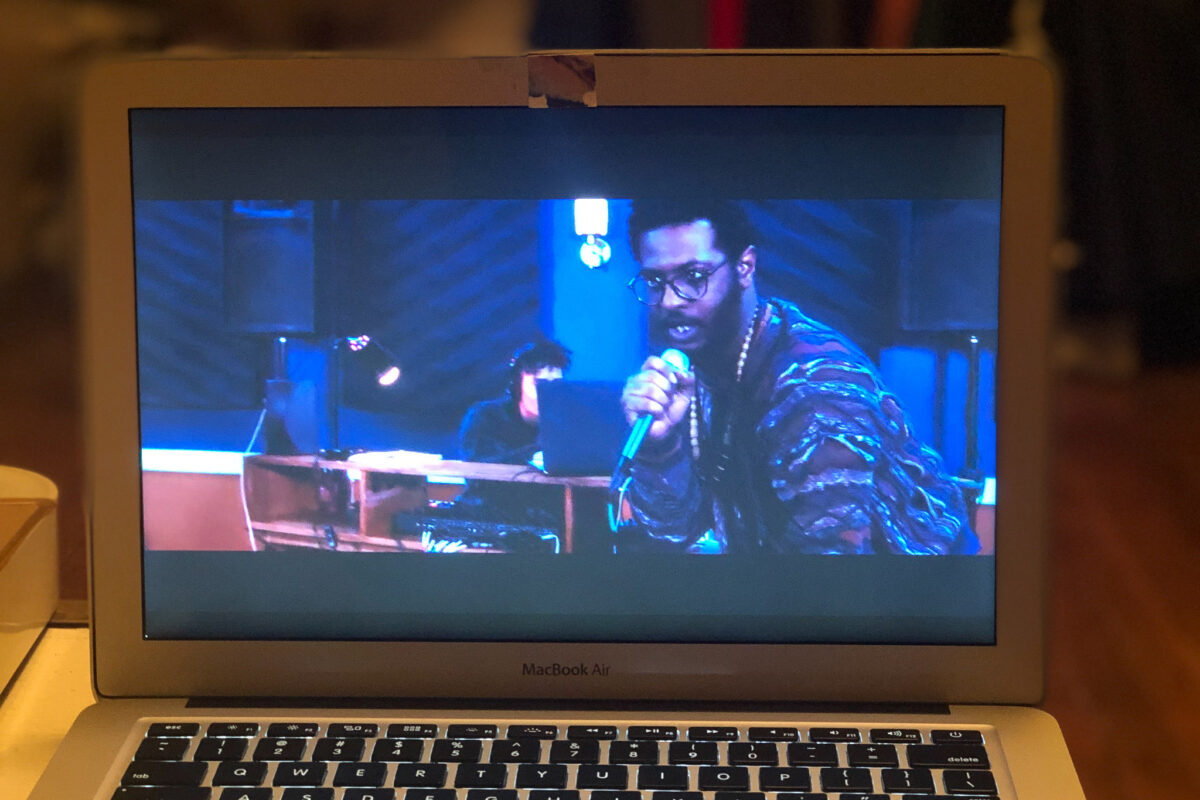
When Idris Goodwin’s “Hype Man: a break beat play” debuted at Boston’s Company One Theatre in 2018, it shook the theater scene to its very core. Now the poignant and captivating show hits the screen, running in film format from April 8–May 9 at the American Repertory Theater’s virtual Oberon stage.
“Hype Man” follows a hip-hop group on the precipice of making it big in the industry. But instances of police violence divide the group. The white rapper, Pinnacle, can’t understand the perspectives of the beat maker, Peep One, and hype man, Verb, both people of color. Pinnacle resists addressing the police violence in music because he has not personally experienced it, and yet he operates in an industry and an art form created by Black musicians. What ensues is an investigation of responsibility in the face of social injustice, through the lens of the hip-hop world.
Cinematographer and director of photography John Oluwole ADEkoje worked closely with the original director of the stage show, Company One’s Shawn LaCount, to translate the story to this new medium. “I think it’s a hybrid at this point. It’s very cinematic, but it still has elements of what made it very powerful as a play,” says ADEkoje. “We had film people in the room and we had theater people in the room. That doesn’t happen all the time.”
The play’s original cast members, Kadahj Bennett, Rachel Cognata and Michael Knowlton, reprised their roles for the film. ADEkoje says this was a big help, with the actors slipping easily back into their former characters and streamlining the filming process.
Seeing the show in film format doesn’t change the story, but it does change the perspective. Rather than showing a room from a distance, as a theater show does, the film takes the audience into these spaces with the characters. The audience is present in the studio while the group records, sitting on the side nodding along to the beat. They are brought up-close-and-personal with the characters in a way that’s challenging to accomplish in a traditional theater venue.
“Hype Man” probes ever-important questions about race and social justice responsibility — in the hip-hop industry, in personal relationships and in careers. It illustrates that these issues can’t be separated or ignored.
Read the full article in The Bay State Banner.